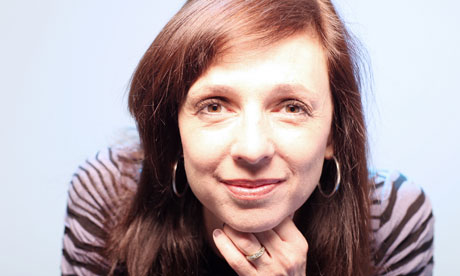Why Are You an Extrovert?
The
same question can be asked inversely; why are you an introvert? Extroversion
and introversion are two personality types that have very serious role to play
in how our social systems and cultural practices are structured. Every society
has norms that validate either one or both these types. In her phenomenal work, Quiet: The Power of Introverts in a World That Can’t Stop Talking Susan Cain takes a step further in analyzing the
two personality types. In ‘Part Two’ of the book titled; “Your biology, Your
self?” she argues the possibility of biological reasons for explicit introvert
or extrovert behavior.
 |
| Image Courtesy: Guardian.co.uk |
Susan
Cain quotes extensively from the findings of Jerome Kagan, the author of Galen’s Prophecy, and “one of the great
developmental psychologists of the twentieth century.” Susan Cain says, “Kagan
has given us painstakingly documented evidence that high reactivity is one
biological basis of introversion.” (104) Extending her arguments a step
further, Cain discusses the personality types under the working conditions at
financial institutions. Susan Cain traces the causes of the credit crisis born
in 2008, into personality types, extroverts specifically. This may sound
outrageous. But Cain has a strong evidence base to presume so.
Introverts
are more resistant, according to Cain, to ‘reward-sensitivity’, a psychological
mad-drive that pushes an individual over the edge, taking blind risks for a
satiating reward. This often results in losing what one cannot afford to lose.
Risk-takers often feel this emotion, though in the financial crisis, they never
listened to warning signs. Introverts, who spent most of their time inside
their cubicles, in solitude, rung alarm bells. Introverts are born with
qualities that help them in insightful problem solving. What the introverts
found out in the calm of their solitary offices were completely missed out by
the extroverts who reside in a different and active wavelength, than introverts.
The top brass of the institutions never bothered to listen to the silent types
and their messages of warning.
 |
| Image Courtesy: Google |
“The
extroverts are more likely to focus on what is happening around them. It’s as
if extroverts are seeing “what is” while their introverted peers are asking
“what if”.” (168)
Susan
Cain is of the opinion that the ability to persist can make an introvert
successful, more than genius. She gives examples of those who took “front-row
seats” during the crisis of 2008. In almost all the companies and banks that
suffered, the extroverted aggressive risk-takers gambled away more than their
lot. She also notices how more aggressive people are given promotions in
companies, when they prove the first risk they took to be successful.
Risk-takers step up the ladder, leaving behind inhibitors and slow-reflection
types.
“Dopamine
is the “reward chemical” released in response to anticipated pleasured. The
more responsive your brain is to dopamine…the more likely you are to go after
rewards like sex, chocolate, money, and status,” (160) writes Susan Cain. Thus,
she once again establishes a complex psychological grounding to the otherwise
inexplicable, human greed.
“Extroverts’
dopamine pathways appear to be more active than those of introverts.” (160) Hope
lives and rests upon the introverts. All these insights suggest how significant
it is to understand and prune personality types at a very early stage of growth
itself. At least, society should provide firm guidelines to respect the
passive-types, unlike what we see in action today.








Comments